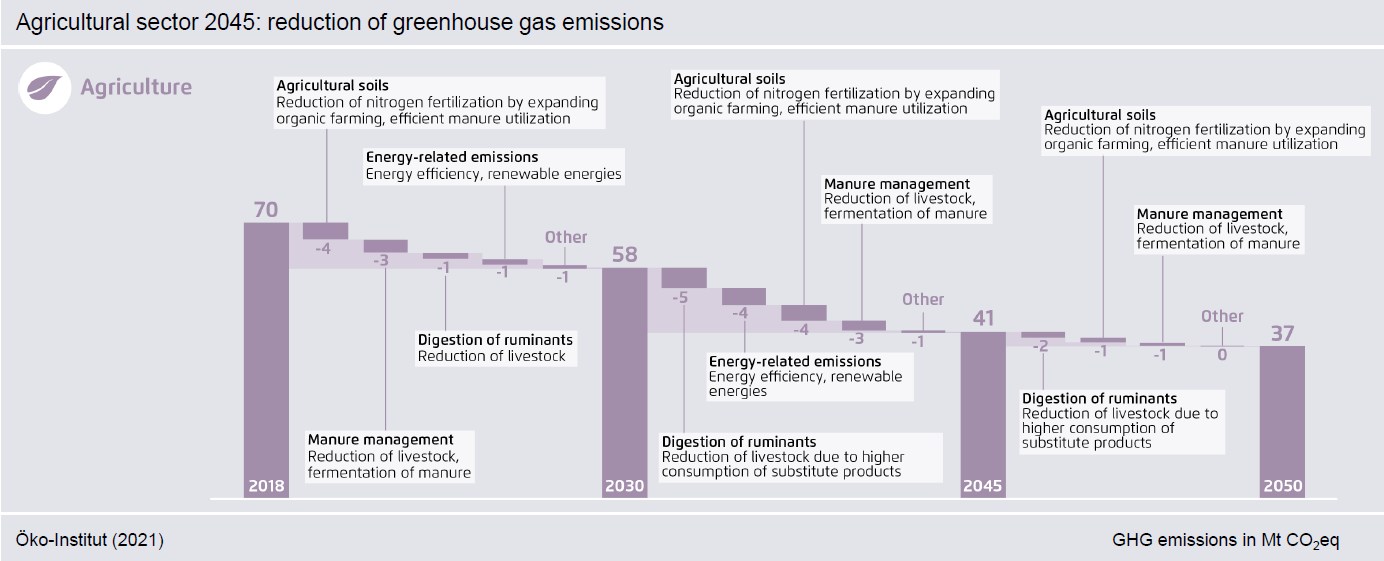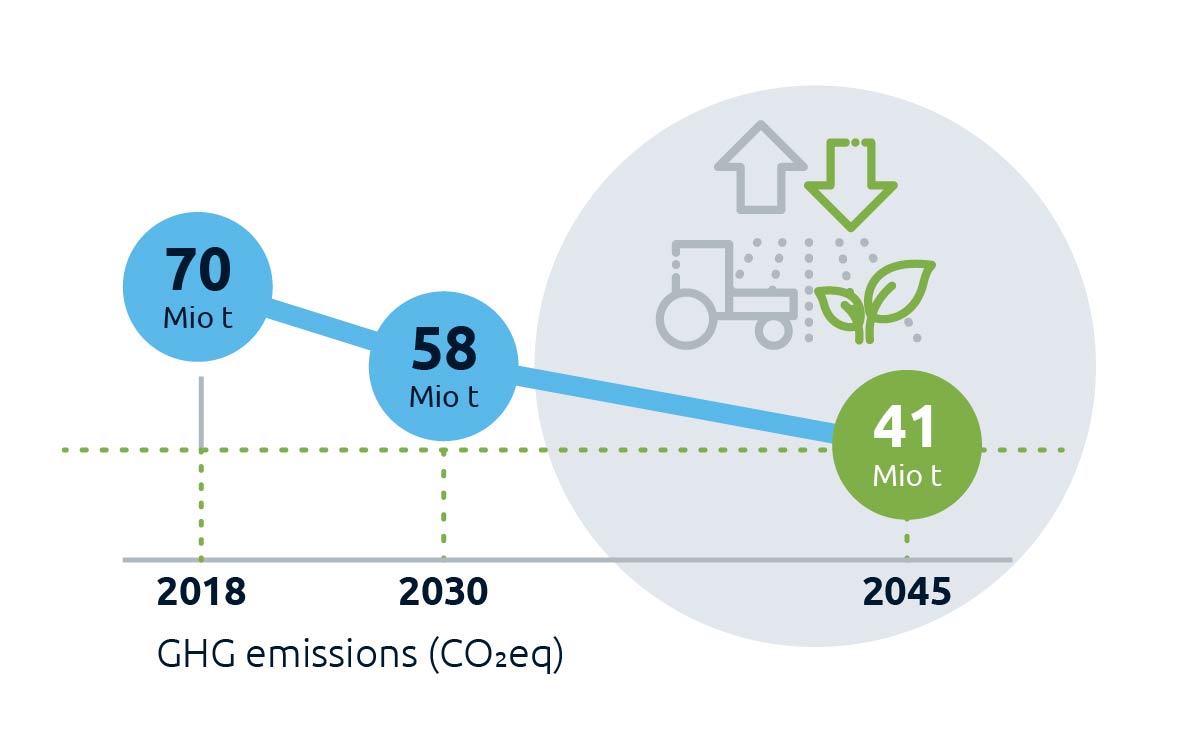Methane and nitrous oxide emissions predominate
In the agricultural sector, greenhouse gas emissions mainly consist of methane and nitrous oxide emissions. They are caused by biological processes in soils and in animal husbandry. Approximately half of the current 70 million tons of CO2 equivalents in this sector arise through digestive processes in cattle and the storage of farm manure. Slightly more than a third of the emissions are due to nitrogen inputs in soils used for the cultivation of animal feed, market fruits and energy crops. The remaining 15 percent of emissions can be attributed to the fermentation of energy crops, other fertilizer applications (e.g. lime) and energy use in agriculture.
A mix of measures is necessary
We will need a broad mix of mitigation measures in order to reduce greenhouse gas emissions in the agricultural sector. These include optimizing processes, such as the fermentation of large quantities of manure in biogas plants, the improved storage of farm manure and the use of low-emission muck spreaders. What is needed is an expansion of organic farming, a switch to crops with lower nitrogen requirements and a reduction of livestock, especially dairy cattle and cattle fattening.
Current consumption trends point in the right direction
Consumer demand for animal products is decreasing and shifting. Among other things, we can observe a moderate decline in milk consumption and a shift in meat consumption towards more poultry and milk and meat alternatives.

